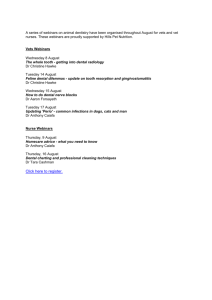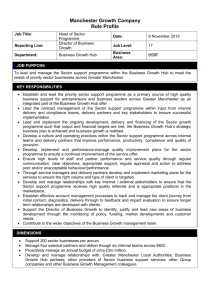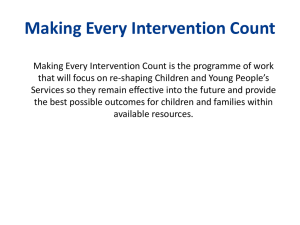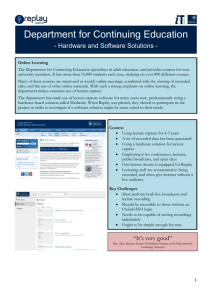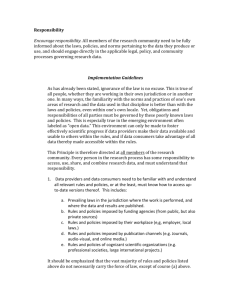OxHRH snapshot
advertisement
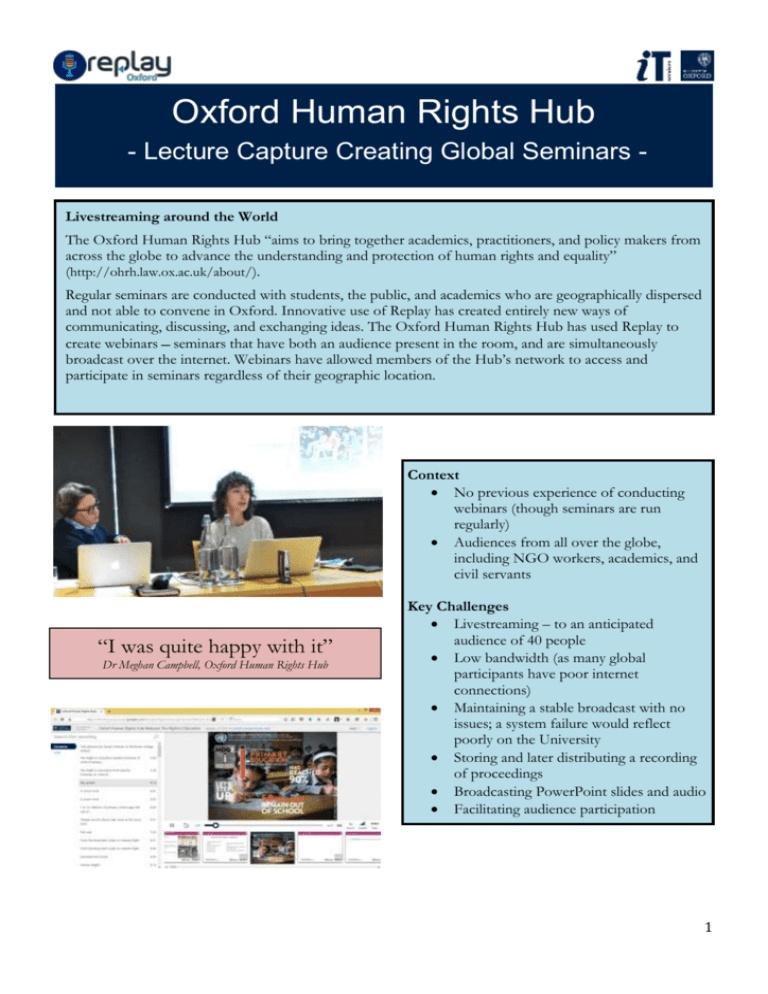
Oxford Human Rights Hub - Lecture Capture Creating Global Seminars Livestreaming around the World The Oxford Human Rights Hub “aims to bring together academics, practitioners, and policy makers from across the globe to advance the understanding and protection of human rights and equality” (http://ohrh.law.ox.ac.uk/about/). Regular seminars are conducted with students, the public, and academics who are geographically dispersed and not able to convene in Oxford. Innovative use of Replay has created entirely new ways of communicating, discussing, and exchanging ideas. The Oxford Human Rights Hub has used Replay to create webinars ̶ seminars that have both an audience present in the room, and are simultaneously broadcast over the internet. Webinars have allowed members of the Hub’s network to access and participate in seminars regardless of their geographic location. Context No previous experience of conducting webinars (though seminars are run regularly) Audiences from all over the globe, including NGO workers, academics, and civil servants “I was quite happy with it” Dr Meghan Campbell, Oxford Human Rights Hub Key Challenges Livestreaming – to an anticipated audience of 40 people Low bandwidth (as many global participants have poor internet connections) Maintaining a stable broadcast with no issues; a system failure would reflect poorly on the University Storing and later distributing a recording of proceedings Broadcasting PowerPoint slides and audio Facilitating audience participation 1 “The sound quality was quite good” “A good use of our time” “Everything looked really nice” Wise Webinar-ing Top Tips Successes Audience numbers far exceeded expectations, with the two webinars attracting 70 and 100 viewers. Even those in areas with poor internet connections had no trouble streaming the live broadcast. Audience participation was excellent, with approximately a third of the online audience responding to questions and polls during the webinars. A webinar organiser commented on the quality of the output, particularly noting its sleekness and professionalism. After being uploaded to the Hub’s website the recordings of these webinars have continued to attract viewers. The software was simple to use, and the seminars ran smoothly with no technical issues. These events have inspired others to follow in the footsteps of the Oxford Human Rights Hub, and run their own webinars. Have an IT specialist in the room during live broadcasts to deal with any technical issues, and ensure staff feel confident in the stability of the system. Make certain staff are aware of the full capabilities of the software, and are trained in its effective use. Keep things simple (e.g. don’t use video unless absolutely necessary) to increase ease of access (particularly for those with poor internet connections), and reduce the chance of things going wrong. Be sure to interact with the online audience, so that they remain involved and invested in the webinar. Be aware of both the similarities and differences between webinars and seminars, and make sure that your presentation and discussion are adapted to the particularities of the genre. Conclusions Future Plans The Hub plans to continue conducting webinars, and hopes to attract even more online viewers in future. They are also considering employing lecture capture software to record their standard seminars. Organisers, the live audience, and the online audience were all very positive about the webinars. Lecture capture has made this new format possible, and allowed the Hub to reach a global audience, who, despite not being physically present, have been able to participate and interact with proceedings in real time. Oxford plans to roll out Replay as a full service in 2016 Want to find out more? Contact the Replay team at: replay@it.ox.ac.uk Check out the latest Replay news at: http://blogs.it.ox.ac.uk/lecture-capture 2
